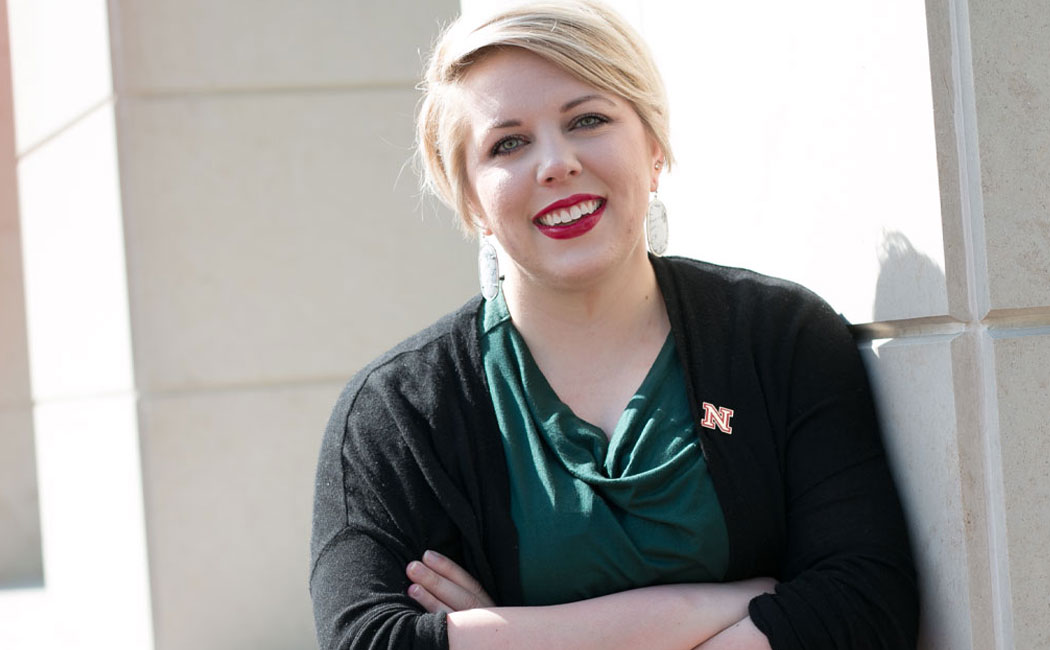
Preschool represents many firsts in a child’s education. For parents, it is often their first interaction with a classroom teacher.
CYFS graduate assistant Amanda Moen is studying preschool teachers’ influence on these early partnerships. With dissertation grant awards from the University of Nebraska’s Buffett Early Childhood Institute and the Society for the Study of School Psychology, Moen will test a measure used to assess teachers’ confidence in promoting family-school partnerships.
Moen will survey 500 Head Start preschool teachers nationwide to test the “Teacher Efficacy for Promoting Partnership” measure. The survey is based on partnership themes and asks teachers to rate their effectiveness when engaging in specific partnership behaviors, such as speaking with parents about their child’s strengths.
Research literature has already established the importance of teacher efficacy for classroom practices, Moen said. With her dissertation study, she aims to provide a clearer picture of the role of teacher beliefs in partnerships and how these beliefs affect children’s early learning.
The study’s measure could potentially be used as a tool for school psychologists and could help tailor teacher professional development opportunities, saving time and resources through data-based decision making.
“Teachers are one half of these interactions,” Moen said. “If their self-efficacy affects partnerships, then we need to make sure we support them so they have the skills to effectively partner.”
Moen began studying family-school partnerships through her graduate assistantship with the CYFS Getting Ready project, an early childhood intervention that assesses the influence of partnerships on young children’s school readiness. While working on this project, Moen realized there was no measure that reflected how teacher-level efficacy factors affect family-school partnerships.
Moen worked with project staff and CYFS director Susan Sheridan to develop a measure that could assess teachers’ confidence in the partnership process. That measure was piloted through the Getting Ready project and now forms the basis of her dissertation.
“I think (this project) is going to be a great learning experience,” Moen said. “CYFS is a great place to do research, and I’ll have a strong support system. It will be exciting to see what we find and if this tool will be useful in future research.”